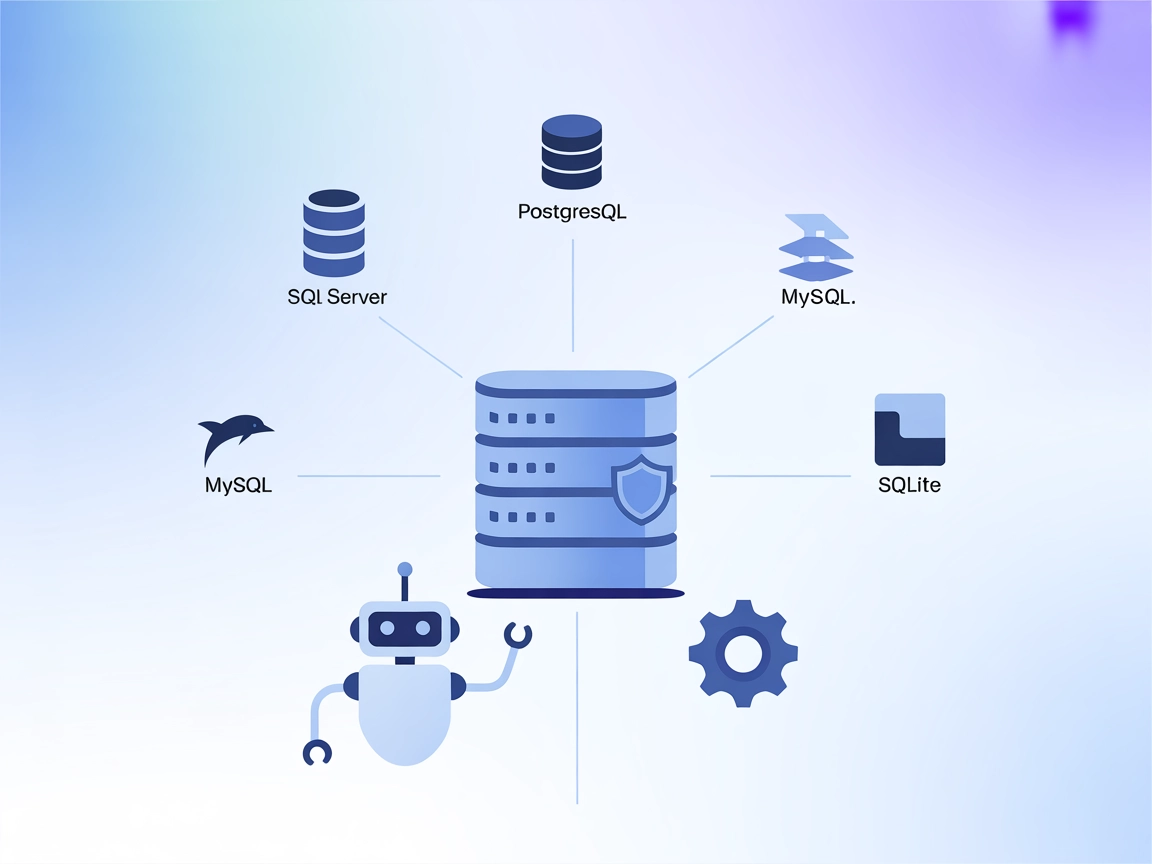
ModelContextProtocol (MCP) Server Integration
The ModelContextProtocol (MCP) Server acts as a bridge between AI agents and external data sources, APIs, and services, enabling FlowHunt users to build context...

Integrate Chroma MCP Server into FlowHunt to unlock powerful AI-accessible vector database features for advanced search, retrieval, and knowledge workflows.
FlowHunt provides an additional security layer between your internal systems and AI tools, giving you granular control over which tools are accessible from your MCP servers. MCP servers hosted in our infrastructure can be seamlessly integrated with FlowHunt's chatbot as well as popular AI platforms like ChatGPT, Claude, and various AI editors.
Chroma MCP Server is an implementation of the Model Context Protocol (MCP) that equips AI assistants with robust database capabilities via the Chroma vector database. It enables seamless integration with external data sources, allowing AI models to create, manage, and query document collections. With features such as full-text and semantic search, metadata filtering, and flexible storage options (ephemeral, persistent, HTTP, and cloud), the server allows developers to enhance their workflow by providing LLMs with efficient data retrieval and management tools. This empowers AI applications to perform advanced data operations like collection management and document querying, thereby supporting tasks such as information retrieval, knowledge management, and more within development workflows.
No prompt templates are mentioned in the repository.
No explicit resources are detailed in the repository documentation.
mcpServers:{
"chroma-mcp": {
"command": "npx",
"args": ["@chroma-core/chroma-mcp@latest"]
}
}
Use environment variables for sensitive keys:
{
"chroma-mcp": {
"env": {
"CHROMA_API_KEY": "${CHROMA_API_KEY}"
},
"inputs": {
"api_key": "${CHROMA_API_KEY}"
}
}
}
mcpServers:{
"chroma-mcp": {
"command": "npx",
"args": ["@chroma-core/chroma-mcp@latest"]
}
}
{
"chroma-mcp": {
"env": {
"CHROMA_API_KEY": "${CHROMA_API_KEY}"
},
"inputs": {
"api_key": "${CHROMA_API_KEY}"
}
}
}
{
"chroma-mcp": {
"command": "npx",
"args": ["@chroma-core/chroma-mcp@latest"]
}
}
{
"chroma-mcp": {
"env": {
"CHROMA_API_KEY": "${CHROMA_API_KEY}"
},
"inputs": {
"api_key": "${CHROMA_API_KEY}"
}
}
}
{
"chroma-mcp": {
"command": "npx",
"args": ["@chroma-core/chroma-mcp@latest"]
}
}
{
"chroma-mcp": {
"env": {
"CHROMA_API_KEY": "${CHROMA_API_KEY}"
},
"inputs": {
"api_key": "${CHROMA_API_KEY}"
}
}
}
Using MCP in FlowHunt
To integrate MCP servers into your FlowHunt workflow, start by adding the MCP component to your flow and connecting it to your AI agent:

Click on the MCP component to open the configuration panel. In the system MCP configuration section, insert your MCP server details using this JSON format:
{
"chroma-mcp": {
"transport": "streamable_http",
"url": "https://yourmcpserver.example/pathtothemcp/url"
}
}
Once configured, the AI agent is now able to use this MCP as a tool with access to all its functions and capabilities. Remember to change “chroma-mcp” to whatever the actual name of your MCP server is and replace the URL with your own MCP server URL.
| Section | Availability | Details/Notes |
|---|---|---|
| Overview | ✅ | |
| List of Prompts | ⛔ | No prompt templates found. |
| List of Resources | ⛔ | No explicit resources documented. |
| List of Tools | ✅ | 9 tools for collection and document management. |
| Securing API Keys | ✅ | Example JSON for env/inputs provided in setup section. |
| Sampling Support (less important in evaluation) | ⛔ | Not mentioned. |
I would rate this MCP server a 6/10. It is robust in database tooling and setup, but lacks clear documentation on prompts, resources, and advanced MCP features like roots and sampling.
| Has a LICENSE | ✅ (Apache-2.0) |
|---|---|
| Has at least one tool | ✅ |
| Number of Forks | 35 |
| Number of Stars | 197 |
Chroma MCP Server is an implementation of the Model Context Protocol (MCP) that integrates the Chroma vector database with AI assistants, enabling advanced collection and document management, semantic and full-text search, and metadata filtering for AI-driven workflows.
It allows your AI agents to create, manage, and query document collections, perform semantic and metadata-based searches, and retrieve analytics such as collection statistics and document counts—all inside your FlowHunt flows.
Add the MCP component to your flow, then configure it with your Chroma MCP server details in the system MCP configuration section. Use the JSON format provided in the documentation for seamless integration.
Yes. The recommended setup uses environment variables to securely store and reference API keys, preventing accidental exposure.
Typical use cases include knowledge base construction, AI-powered information retrieval, semantic document search, metadata filtering, collection analytics, and efficient data ingestion for AI training or contextual workflows.
Supercharge your FlowHunt workflows with scalable collection management, semantic search, and advanced document operations using Chroma MCP Server.

The ModelContextProtocol (MCP) Server acts as a bridge between AI agents and external data sources, APIs, and services, enabling FlowHunt users to build context...

The Model Context Protocol (MCP) Server bridges AI assistants with external data sources, APIs, and services, enabling streamlined integration of complex workfl...

The MCP Database Server enables secure, programmatic access to popular databases like SQLite, SQL Server, PostgreSQL, and MySQL for AI assistants and automation...
Cookie Consent
We use cookies to enhance your browsing experience and analyze our traffic. See our privacy policy.